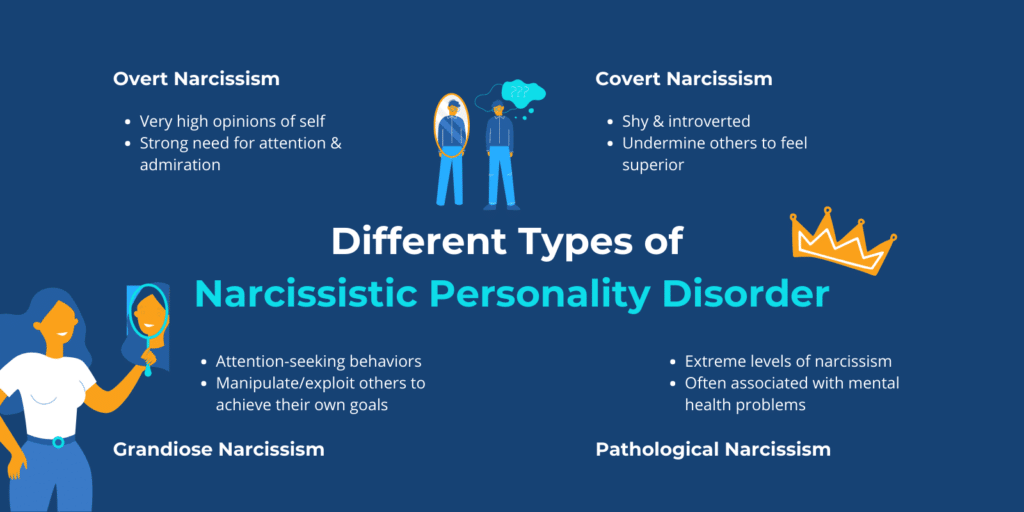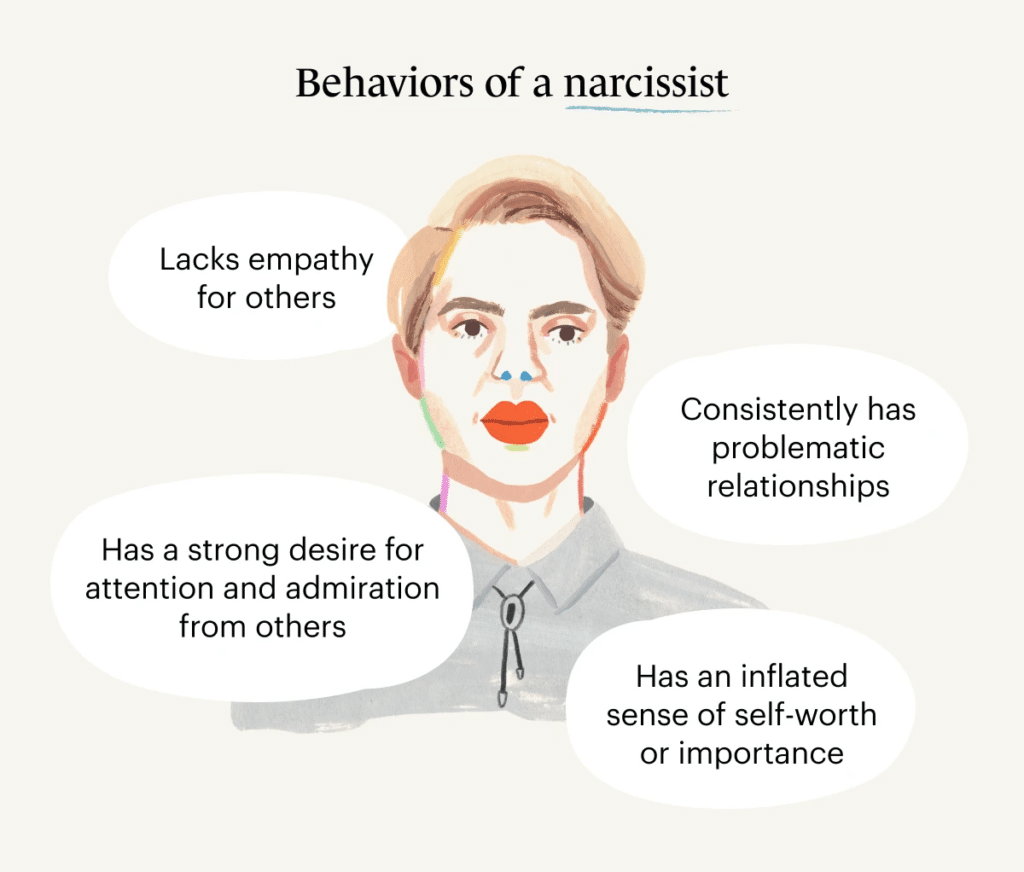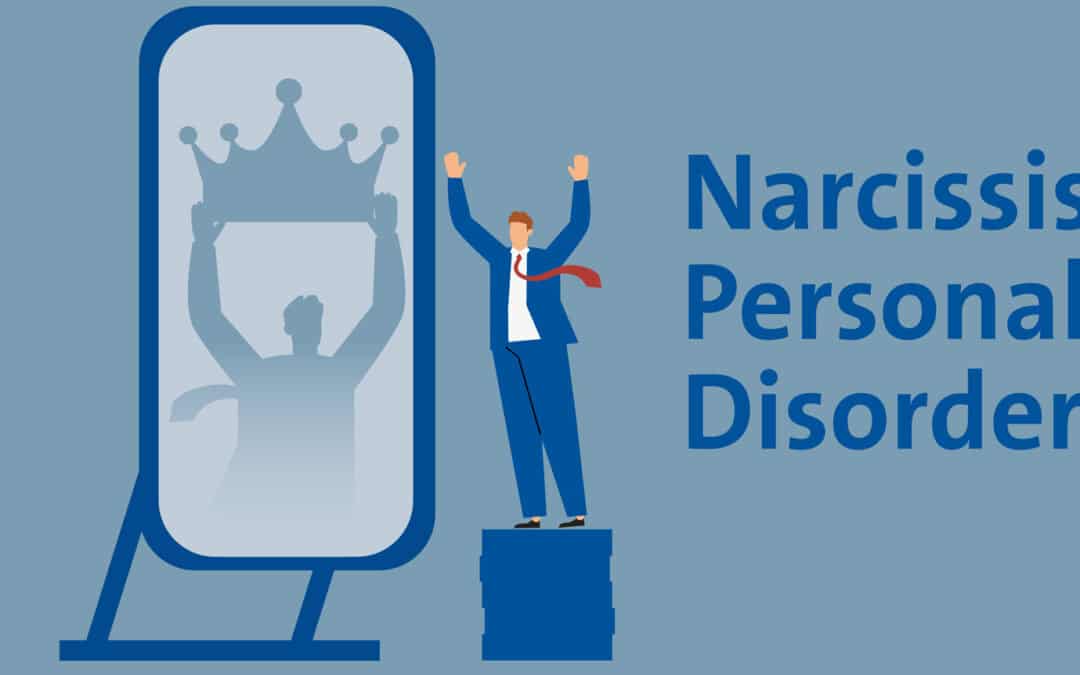What is narcissistic personality disorder (NPD)?
The word narcissism gets tossed around a lot in our selfie-obsessed, celebrity-driven culture, often to describe someone who seems excessively vain or full of themselves. But in psychological terms, narcissism doesn’t mean self-love—at least not of a genuine sort. It’s more accurate to say that people with narcissistic personality disorder (NPD) are in love with an idealized, grandiose image of themselves. And they’re in love with this inflated self-image precisely because it allows them to avoid deep feelings of insecurity. But propping up their delusions of grandeur takes a lot of work—and that’s where the dysfunctional attitudes and behaviors come in.
Narcissistic personality disorder involves a pattern of self-centered, arrogant thinking and behavior, a lack of empathy and consideration for other people, and an excessive need for admiration. Others often describe people with NPD as cocky, manipulative, selfish, patronizing, and demanding. This way of thinking and behaving surfaces in every area of the narcissist’s life: from work and friendships to family and love relationships.
People with narcissistic personality disorder are extremely resistant to changing their behavior, even when it’s causing them problems. Their tendency is to turn the blame on to others. What’s more, they are extremely sensitive and react badly to even the slightest criticisms, disagreements, or perceived slights, which they view as personal attacks. For the people in the narcissist’s life, it’s often easier just to go along with their demands to avoid the coldness and rages. However, by understanding more about narcissistic personality disorder, you can spot the narcissists in your life, protect yourself from their power plays, and establish healthier boundaries.
Signs and symptoms of narcissistic personality disorder
- Grandiose sense of self-importance
- Lives in a fantasy world that supports their delusions of grandeur.
- Needs constant praise and admiration.
- Sense of entitlement
- Exploits others without guilt or shame.
- Frequently demeans, intimidates, bullies, or belittles others.

Different types of narcissists
Narcissism comes in several forms. Adaptive narcissism is when a person with this disorder leans into positive traits—such as self-sufficiency and confidence—that can be healthy. They may help someone set high ambitions at work, for example, or enjoy satisfying relationships without being overdependent on a partner.
Maladaptive narcissism, on the other hand, is characterized by the toxic traits, such as a sense of entitlement and willingness to exploit others. The different forms of maladaptive narcissism include:
Overt or grandiose narcissism. Overt narcissists tend to be extroverted but also uncooperative, selfish, and overbearing. Their exaggerated self-image and high self-esteem allow them to be confident and assertive. However, they’re also likely to overestimate their own emotional intelligence.
Covert or vulnerable narcissism. It’s common to imagine all narcissists as dominant and overwhelming in social situations. However, covert narcissists are introverted. They tend to be extremely sensitive to criticism and suffer from low self-esteem. They can be defensive and passive-aggressive, but they are less likely to overestimate their emotional abilities than overt narcissists.
Communal narcissism. Communal narcissists tend to view themselves as altruistic and claim to care deeply about fairness. They present themselves to others as supportive and selfless. However, their behavior is motivated by a desire for social power and a sense of superiority or entitlement. Because of this, their actions don’t always match their beliefs.
Antagonistic narcissism. In contrast with communal narcissists, antagonistic narcissists take a highly competitive approach to social interactions. They often exhibit zero-sum thinking, believing that every situation has a “loser” and “winner.” This view of the world leads them to be aggressive and hostile. They may be quick to disparage others and slow or unwilling to forgive.
Malignant narcissism. Malignant narcissism can be a more destructive form of the personality disorder. In addition to the typical signs of narcissism, a malignant narcissist might be aggressive, paranoid, or sadistic—taking joy in other people’s pain. They tend to display antisocial behavior, disregarding the rights or safety of others.
Dealing with a narcissist: Don’t fall for the fantasy.
Narcissists can be very magnetic and charming. They are very good at creating a fantastical, flattering self-image that draw us in. We’re attracted to their apparent confidence and lofty dreams—and the shakier our own self-esteem, the more seductive the allure. It’s easy to get caught up in their web, thinking that they will fulfill our longing to feel more important, more alive. But it’s just a fantasy, and a costly one at that.
Your needs won’t be fulfilled (or even recognized). It’s important to remember that narcissists aren’t looking for partners; they’re looking for obedient admirers. Your sole value to the narcissist is as someone who can tell them how great they are to prop up their insatiable ego. Your desires and feelings don’t count.
Look at the way the narcissist treats others. If the narcissist lies, manipulates, hurts, and disrespects others, he or she will eventually treat you the same way. Don’t fall for the fantasy that you’re different and will be spared.
Take off the rose-colored glasses. It’s important to see the narcissist in your life for who they really are, not who you want them to be. Stop making excuses for bad behavior or minimizing the hurt it’s causing you. Denial will not make it go away. The reality is that narcissists are very resistant to change, so the true question you must ask yourself is whether you can live like this indefinitely.
Focus on your own dreams. Instead of losing yourself in the narcissist’s delusions, focus on the things you want for yourself. What do you want to change in your life? What gifts would you like to develop? What fantasies do you need to give up in order to create a more fulfilling reality?

Set healthy boundaries
Healthy relationships are based on mutual respect and caring. But narcissists aren’t capable of true reciprocity in their relationships. It isn’t just that they’re not willing; they truly aren’t able. They don’t see you. They don’t hear you. They don’t recognize you as someone who exists outside of their own needs. Because of this, narcissists regularly violate the boundaries of others. What’s more, they do so with an absolute sense of entitlement.
Narcissists think nothing of going through or borrowing your possessions without asking, snooping through your mail and personal correspondence, eavesdropping on conversations, barging in without an invitation, stealing your ideas, and giving you unwanted opinions and advice. They may even tell you what to think and feel. It’s important to recognize these violations for what they are, so you can begin to create healthier boundaries where your needs are respected.
Make a plan. If you have a long-standing pattern of letting others violate your boundaries, it’s not easy to take back control. Set yourself up for success by carefully considering your goals and the potential obstacles. What are the most important changes you hope to achieve? Is there anything you’ve tried in the past with the narcissist that worked? Anything that hasn’t? What is the balance of power between you and how will that impact your plan? How will you enforce your new boundaries? Answering these questions will help you evaluate your options and develop a realistic plan.
Consider a gentle approach. If preserving your relationship with the narcissist is important to you, you will have to tread softly. By pointing out their hurtful or dysfunctional behavior, you are damaging their self-image of perfection. Try to deliver your message calmly, respectfully, and as gently as possible. Focus on how their behavior makes you feel, rather than on their motivations and intentions. If they respond with anger and defensiveness, try to remain calm. Walk away if need be and revisit the conversation later.
Don’t set a boundary unless you’re willing to keep it. You can count on the narcissist to rebel against new boundaries and test your limits, so be prepared. Follow up with any consequences specified. If you back down, you’re sending the message that you don’t need to be taken seriously.
Be prepared for other changes in the relationship. The narcissist will feel threatened and upset by your attempts to take control of your life. They are used to calling the shots. To compensate, they may step up their demands in other aspects of the relationship, distance themselves to punish you, or attempt to manipulate or charm you into giving up the new boundaries. It’s up to you to stand firm.
Don’t take things personally
To protect themselves from feelings of inferiority and shame, narcissists must always deny their shortcomings, cruelties, and mistakes. Often, they will do so by projecting their own faults on to others. It’s very upsetting to get blamed for something that’s not your fault or be characterized with negative traits you don’t possess. But as difficult as it may be, try not to take it personally. It really isn’t about you.
Don’t buy into the narcissist’s version of who you are. Narcissists don’t live in reality, and that includes their views of other people. Don’t let their shame and blame game undermine your self-esteem. Refuse to accept undeserved responsibility, blame, or criticism. That negativity is the narcissist’s to keep.
Don’t argue with a narcissist. When attacked, the natural instinct is to defend yourself and prove the narcissist wrong. But no matter how rational you are or how sound your argument, they are unlikely to hear you. And arguing the point may escalate the situation in a very unpleasant way. Don’t waste your breath. Simply tell the narcissist you disagree with their assessment, then move on.
Know yourself. The best defense against the insults and projections of the narcissist is a strong sense of self. When you know your own strengths and weaknesses, it’s easier to reject any unfair criticisms leveled against you.
Let go of the need for approval. It’s important to detach from the narcissist’s opinion and any desire to please or appease them at the expense of yourself. You need to be okay with knowing the truth about yourself, even if the narcissist sees the situation differently.
Look for support and purpose elsewhere. If you’re going to stay in a relationship with a narcissist, be honest with yourself about what you can—and can’t—expect. A narcissist isn’t going to change into someone who truly values you, so you’ll need to look elsewhere for emotional support and personal fulfillment.
Learn what healthy relationships look and feel like. If you come from a narcissistic family, you may not have a very good sense of what a healthy give-and-take relationship is. The narcissistic pattern of dysfunction may feel comfortable to you. Just remind yourself that as familiar as it feels, it also makes you feel bad. In a reciprocal relationship, you will feel respected, listened to, and free to be yourself.
Spend time with people who give you an honest reflection of who you are. To maintain perspective and avoid buying into the narcissist’s distortions, it’s important to spend time with people who know you as you really are and validate your thoughts and feelings.
Make new friendships, if necessary, outside the narcissist’s orbit. Some narcissists isolate the people in their lives in order to better control them. If this is your situation, you’ll need to invest time into rebuilding lapsed friendships or cultivating new relationships.
Look for meaning and purpose in work, volunteering, and hobbies. Instead of looking to the narcissist to make you feel good about yourself, pursue meaningful activities that make use of your talents and allow you to contribute.
If you need help for narcissistic personality disorder
Due to the very nature of the disorder, most people with NPD are reluctant to admit they have a problem—and even more reluctant to seek help. Even when they do, narcissistic personality disorder can be very challenging to treat. But that doesn’t mean there’s no hope or that changes aren’t possible. Mood stabilizers, antidepressants, and antipsychotic drugs are sometimes prescribed in severe cases or if your NPD co-occurs with another disorder. However, in most cases psychotherapy is the primary form of treatment.
Working with a skilled therapist, you can learn to accept responsibility for your actions, develop a better sense of proportion, and build healthier relationships. You can also work on developing your emotional intelligence (EQ). EQ is the ability to understand, use, and manage your emotions in positive ways to empathize with others, communicate effectively, and builder strong relationships. Importantly, the skills that make up emotional intelligence can be learned at any time.

